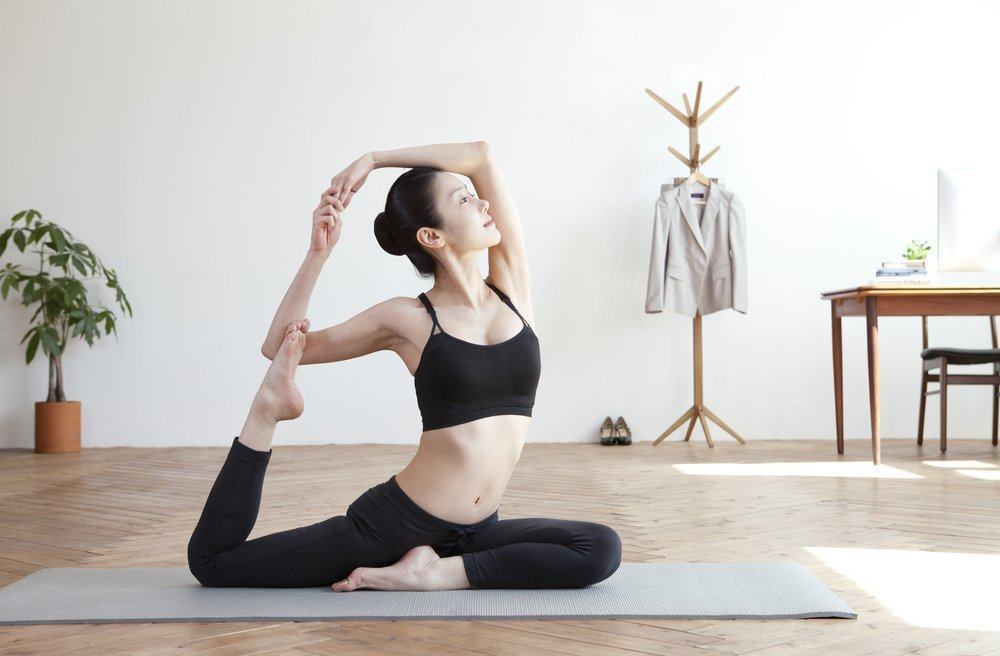Contents:
- Medical Video: 5 Water Fasting Tips for better Results
- 1. Don't miss sahur
- 2. Consume nutritious food and drink plenty of water
- 3. Choose the right time to practice yoga
- 4. Gentle Yoga is highly recommended
- 5. Take a nap
Medical Video: 5 Water Fasting Tips for better Results
We don't feel we have entered the second week of Ramadan this time. What about your fasting? Still smooth? Or start limp? Often when fasting we feel not as active as the other months, because usually lack of sleep, feeling sleepy, and lack of energy, so not infrequently a full month we forget sports.
For you practitioners of true yoga, besides being good for you physically, routine practice during fasting also trains you to deepen your yoga practice spiritually, and of course this is in line with the spiritual values that you feel when you are hungry and thirsty.
As you know, fasting is very good for your health, because when you fast, you give your body the chance to improve body performance, including the performance of the digestive organs, lowering blood sugar levels, and increasing immunity. There are a few tips for staying active in yoga while fasting and avoiding feeling weak or lacking in energy.
1. Don't miss sahur
This is very important, because like breakfast is very important for you to do in other months, eating sahur is your source of energy throughout the day while fasting. Try to keep eating until it approaches the time of prayer, and pay attention to your nutritional intake at dawn.
2. Consume nutritious food and drink plenty of water
Make sure you pay attention to your food intake during fasting. Expand nutritious food by at least combining carbohydrates, proteins and fats. Carbohydrates are good for energy sources while protein and fat are good for making you feel full throughout the day. Choose the type of carbohydrates that are high in fiber such as oatmeal, avoid high oily foods or fried foods. And it is highly recommended that you drink water instead of caffeinated drinks such as tea and coffee, which may make it difficult for you to sleep when changes in sleep patterns during Ramadan occur.
Drink at least 8 glasses of water a day to keep your body hydrated, but make sure not to drink large portions at once. Besides drinking water, some fruits and vegetables that contain lots of water such as watermelon, cucumber, tomatoes and oranges are also very good for hydration and can be consumed at dawn.
3. Choose the right time to practice yoga
When you work in an office, a good time to practice is just before breaking the fast, because usually the office hours go home and practice yoga better if your stomach is empty. You may hesitate and feel just before breaking. You no longer have energy for yoga, but imagine when you leave the classroom, it's time to break the fast, then your body gets water intake. Feeling tired after practicing will immediately disappear. But make sure you don't eat a big meal right away, but start with dates or snacks.
For those of you who have more flexible working hours, or maybe just practicing yoga on weekends, you can also try yoga in the morning. From my experience, the body feels very fresh and you have the opportunity to take a nap after practicing yoga. Napping while fasting also adds merit, you know!
4. Gentle Yoga is highly recommended
Actually it is not necessary for you to change the type of yoga that you practice, especially if the quantity of your yoga practice before is more than three times a week. However, practicing gentle yoga, restorative yoga, or yin yoga is very good for supporting the condition of your body that is fasting. The types of yoga that I mentioned can help you restore energy, make you more relaxed and calm, so it is very much in line with the essence of fasting. Aside from continuing to practice physically, you also train your psychic to be more focused, balanced, and more patient.
But if you still want to practice Hot Yoga, Vinyasa or Ashtanga, and other types of yoga that are more dynamic and routine you do, of course there are no restrictions, as long as you keep understanding your body every time you practice and not force yourself when you feel tired
5. Take a nap
One of the challenges in the fasting month is changing your sleep pattern, but sleeping at least 8 hours a day is very important for you to do. You can divide your sleep duration into parts, 6-7 hours at night, 30-60 minutes after dawn, and 30-60 minutes at your lunch hour, for example. Or even 15 minutes every time you finish praying.
So what are you waiting for? Don't make Ramadan an excuse to skip your yoga practice, fluent worship and yoga go on!
* Dian Sonnerstedt is a professional yoga instructor who actively teaches various types of yoga from Hatha, Vinyasa, Yin, and Prenatal Yoga to private classes, offices and at the Ubud Yoga Center, Bali. Dian is currently registered with YogaAlliance.org and can be contacted directly through her Instagram account, @diansonnerstedt.












